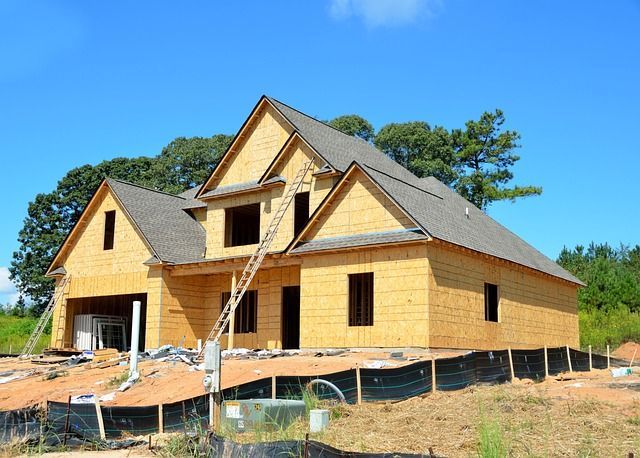or email bjoyce@grandcoastcapital.com

Why DSCR Loans are Ideal for Real Estate Investors and How to Use Them for Short-Term Rental Properties

Investing in short-term rental properties like Airbnb has become a lucrative opportunity for many, but financing these investments can sometimes be challenging. A unique financing option called a Debt Service Coverage Ratio (DSCR) loan offers a solution tailored to real estate investors who prioritize cash flow. Unlike traditional mortgages, which rely heavily on a borrower’s income, DSCR loans evaluate a property’s ability to generate revenue to cover loan payments. Follow along as we break down what DSCR loans are, why they’re suitable for certain investors, and how to use them to maximize returns in short-term rental markets.
What Is a DSCR Loan?
A DSCR loan is a type of commercial loan that relies primarily on the property’s income potential rather than the borrower’s personal income. DSCR stands for Debt Service Coverage Ratio, which is the ratio between a property’s annual income and its debt obligations. Lenders use this ratio to evaluate whether a property generates sufficient income to cover the loan payment. For example, a DSCR of 1.25 means that the property’s income is 25% higher than the loan’s annual debt payment, a favorable ratio that gives lenders confidence in the property’s financial viability.
To calculate the DSCR, divide the property’s net operating income by the annual loan payment. A DSCR above 1.0 indicates the property earns enough to cover its debt payments, while anything below suggests it may struggle. Typically, lenders look for a DSCR of at least 1.2 to 1.25 as a baseline, though this can vary based on the lender and market conditions.
Key Characteristics of DSCR Loans:
- Focus on Property Income: DSCR loans depend on the rental property’s income, not the borrower’s W-2 or other income sources.
- Flexible Eligibility Requirements: Because these loans place less emphasis on personal income, they are more accessible for real estate investors who prioritize cash flow over personal earnings.
- Typically Higher Interest Rates: Due to the focus on property income and lower personal income requirements, DSCR loans often have higher interest rates than conventional loans.
Why Might People Need a DSCR Loan?
DSCR loans are designed to meet the unique needs of real estate investors and can be particularly useful for:
- Investors with Variable Personal Income: Real estate investors, business owners, or self-employed individuals who don’t have steady W-2 income may find DSCR loans appealing, as they don’t heavily weigh personal income.
- Expanding Real Estate Portfolios: DSCR loans allow experienced investors to grow their portfolios based on each property’s cash flow rather than their debt-to-income ratios, making it easier to scale investments.
- Short-Term Rental Investments: For investors aiming to buy properties to rent out on platforms like Airbnb and VRBO, DSCR loans provide a path to finance these short-term rental properties based on anticipated income rather than strict personal income checks.
Leveraging DSCR Loans for Airbnb and Short-Term Rentals
Using a DSCR loan to purchase an Airbnb or short-term rental property offers several advantages for maximizing investment returns:
- Income-Based Qualification: Since DSCR loans assess the property’s ability to generate rental income, borrowers can qualify based on the projected cash flow of their Airbnb rather than their personal income. This makes DSCR loans particularly advantageous for investors in popular rental markets.
- Scalability: DSCR loans allow investors to expand their short-term rental portfolios faster, as personal debt-to-income limitations do not restrict eligibility. With each property qualifying based on its own DSCR, investors can purchase multiple properties if each demonstrates enough cash flow to cover its loan payments.
- Flexible Loan Terms and Uses: Many DSCR loans offer flexible terms and can be used to purchase properties and refinance or renovate properties for higher earning potential. For example, an investor could secure a DSCR loan to purchase and upgrade a property, improving its appeal and income potential on Airbnb.
Pros and Cons of DSCR Loans
Pros:
- Easier Approval for Investors: DSCR loans often require less documentation of personal income, focusing more on the property’s income potential.
- Quick Access to Capital: These loans are typically faster to obtain than conventional loans, allowing investors to move quickly in competitive markets.
- Portfolio Growth: DSCR loans can support rapid expansion for investors seeking to build a portfolio of cash-flowing properties.
Cons:
- Higher Interest Rates: DSCR loans generally have higher interest rates compared to conventional loans, reflecting the risk that lenders take by basing loans on property income.
- Potentially Larger Down Payments: Some lenders may require higher down payments to offset the risk of the loan.
- Income Volatility in Short-Term Rentals: Short-term rental income can fluctuate based on seasonal demand, local regulations, and market changes, potentially impacting the DSCR and making it more challenging to meet debt payments during slow periods.
DSCR loans provide a powerful financing option for real estate investors, particularly those interested in short-term rentals like Airbnb. With the loan qualification based on a property’s cash flow rather than the borrower's income, DSCR loans open doors for investors to expand their portfolios and capitalize on high-yield properties. However, they come with some risks, including higher interest rates and potential income variability in short-term rentals. By carefully evaluating the market and ensuring the property’s potential income is sufficient, investors can leverage DSCR loans effectively to grow their real estate ventures.
Why DSCR Loans are Ideal for Real Estate Investors FAQs
What is a DSCR loan?
A Debt Service Coverage Ratio (DSCR) loan is a type of commercial loan primarily based on a property's projected income rather than the borrower's personal income. Lenders use the DSCR, calculated by dividing the property's net operating income by its annual debt payments, to assess the property's ability to cover its loan payments. A DSCR above 1.0 indicates sufficient income to cover debt obligations.
How do DSCR loans differ from traditional mortgages?
Unlike traditional mortgages that heavily rely on the borrower's credit score and income history, DSCR loans prioritize the property's income-generating potential. This makes them particularly attractive to real estate investors whose personal income might not reflect their investment capabilities.
What is your return policy?
You have 45 days to return items for a full refund, with or without a receipt. Items must still have their original tags.
Why are DSCR loans ideal for Airbnb and short-term rental investments?
DSCR loans are well-suited for short-term rentals because they align with the income-driven nature of these investments. Lenders evaluate the property's projected rental income to determine loan eligibility, allowing investors to qualify based on the anticipated cash flow of their Airbnb or short-term rental property.
What are the benefits of using a DSCR loan for short-term rentals?
- Income-Based Qualification: Qualify based on projected rental income rather than personal income.
- Scalability: Expand short-term rental portfolios quickly without being restricted by personal debt-to-income ratios.
- Flexibility: Utilize DSCR loans for property purchases, refinancing, renovations, and improvements to boost income potential.
What are the potential drawbacks of DSCR loans?
- Higher Interest Rates: Expect higher interest rates compared to conventional loans due to the emphasis on property income and lower personal income requirements.
- Larger Down Payments: Some lenders may require a larger down payment to mitigate risk.
- Income Volatility: Short-term rental income can fluctuate seasonally, impacting DSCR and potentially making debt payments challenging during slow periods.
Who might benefit from a DSCR loan?
- Investors with Variable Income: Individuals with fluctuating income, such as real estate investors, business owners, or self-employed individuals, can benefit from the income-focused approach of DSCR loans.
- Portfolio Expansion: Experienced investors can leverage DSCR loans to grow their portfolios based on each property's cash flow, enabling rapid expansion.
- Short-Term Rental Investors: Investors seeking to purchase properties for platforms like Airbnb can utilize DSCR loans to finance their investments based on anticipated rental income.
What factors should be considered before applying for a DSCR loan?
- Market Research: Conduct thorough research on the short-term rental market, including average rental rates, occupancy rates, and seasonal demand fluctuations.
- Property Evaluation: Carefully assess the property's income potential, considering factors like location, amenities, and comparable rental properties.
- Financial Projections: Develop realistic financial projections for the property, taking into account potential expenses and income fluctuations.
- Lender Selection: Compare DSCR loan offerings from different lenders, paying close attention to interest rates, loan terms, and down payment requirements.
Podcast: Why DSCR Loans are Ideal for Real Estate Investors Deep Dive

Fast, Reliable Hard Money Lending
email:
bryan@rf-boston.com
tel no: (207) 752.0107
Designed by Mystic Media Dot com


